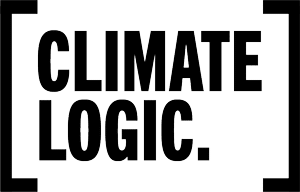As sustainability regulations evolve and consumer expectations rise, one acronym is becoming essential for every Australian business: ESG.
Standing for Environmental, Social, and Governance, ESG is no longer just a corporate buzzword—it’s a framework that’s reshaping how businesses operate, report, and grow in 2025. Whether you’re a startup, a service provider, or a manufacturer, understanding ESG is now critical to remaining competitive and future-proof.
What is ESG?
Environmental – Your company’s impact on the planet. This includes emissions, energy use, waste, water, supply chain footprint, and how you’re addressing climate risks.
Social – How you treat people, from employees and customers to communities and suppliers. Diversity, labour rights, workplace safety, and social contribution all fall here.
Governance – How your business is run. This includes transparency, accountability, anti-corruption, risk management, and board diversity.
Together, ESG helps paint a picture of how responsibly your business is run—and how resilient it is in a fast-changing world.
Why ESG Matters More Than Ever in 2025
1. Investors are paying attention
Australian and global investors are increasingly using ESG performance to guide funding decisions. Superannuation funds, banks, and private equity are screening companies on ESG risks.
2. Regulation is tightening
With mandatory climate disclosure frameworks on the way in Australia (such as the upcoming ASRS standards), ESG reporting is shifting from voluntary to essential—especially for medium to large enterprises and their supply chains.
3. Customers and clients expect it
Conscious consumers and corporate buyers alike are favouring businesses with strong ESG credentials. Whether it’s choosing a supplier with a clear emissions strategy or buying from brands with ethical practices—ESG is influencing purchasing decisions.
4. It’s a tool for better business
Beyond compliance, ESG offers businesses a powerful lens to spot risks, find efficiencies, build trust, and drive innovation.
Common Misconceptions About ESG
- “It’s only for big corporates.”
Not anymore. SMEs are increasingly being asked to report on ESG performance, especially when part of larger supply chains. - “We’re sustainable, so we’re already doing ESG.”
Sustainability is part of ESG, but ESG also includes social and governance factors—many of which require new ways of measuring and reporting. - “It’s too complex or time-consuming.”
With the right tools and guidance, ESG becomes a strategic asset, not a burden.
How to Get Started with ESG
If your business is new to ESG, start with these steps:
- Identify your key ESG risks and opportunities
This could include emissions from operations, diversity gaps, or governance structure. - Engage your stakeholders
Employees, customers, and suppliers can offer insight into what matters most. - Track and report your performance
Start measuring your impact, even with simple tools. Transparency is more important than perfection. - Embed ESG into your strategy
Align your ESG goals with your business strategy for long-term value creation.
How Climate Logic Can Help
At Climate Logic, we work with purpose-driven organisations to integrate ESG thinking into their operations—whether through carbon accounting, B Corp certification, or tailored sustainability consulting.
We’ll help you decode ESG, understand where your business stands, and design a strategy that aligns with both your values and upcoming regulations.
Ready to get started?
Contact us or explore how we can support your ESG journey through our impact strategy services.

![[Climate Logic]](https://climatelogic.com.au/wp-content/uploads/2023/07/climate-logic_logo_reverse.png)

